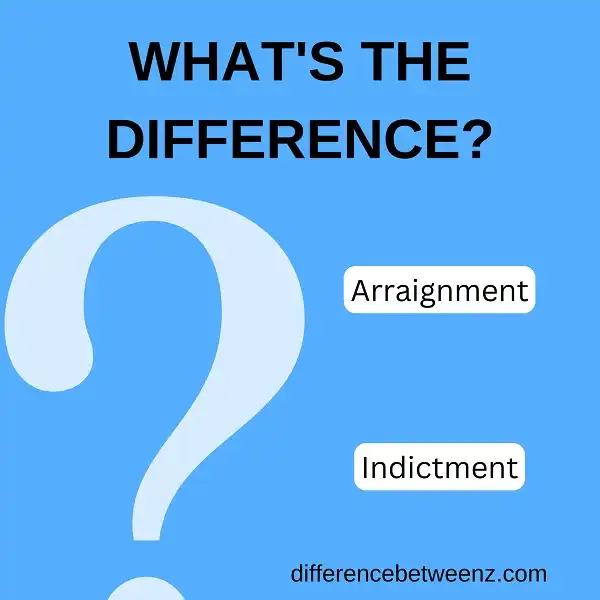What is the difference between an arraignment and an indictment? Most people believe that they are one and the same, but this is not the case. An arraignment happens when a person first goes to court and learns what charges have been filed against them. An indictment, on the other hand, occurs when a grand jury reviews the evidence presented by the prosecutor and decides if there is enough evidence for a trial. If so, they will issue an indictment against the accused. Here we will take a closer look at these two legal proceedings.
What are some of the key differences between an arraignment and an indictment? Keep reading to find out!
What is an Arraignment?
Arraignment is an important part of the criminal justice process. It is a hearing held in front of a judge in which an accused person enters an initial plea to criminal charges that have been laid against them.
- This plea will usually be not guilty, guilty, or no contest, after being informed of the rights they have and any legal issues they may face. The arraignment also allows an individual to challenge the charges with an attorney present if necessary.
- In addition, an arraignment enables a defendant to negotiate a plea bargain or find out what kind of bail might be set if an arrest has already taken place.
- Knowing your rights and navigating an arraignment can be difficult which is why it’s important to consult an experienced lawyer should an arraignment ever become an issue.
What is an Indictment?
An Indictment is an accusation of criminal behavior that is made by an authorized body such as a grand jury or prosecutor. It notifies an individual or group that the government has enough evidence for them to be tried in court for an alleged crime. The document often lists the charges, including relevant dates and facts about the suspected or accused crime. According to United States law, an indictment must be read aloud in an open court before it can be considered valid. An Indictment is an important part of the judicial process as it drives an entire case forward and often weighs heavily on one’s future.
Difference between an Arraignment and an Indictment
Arraignment and an Indictment are two crucial stages in the criminal justice system.
- Both involve an important decision that is made regarding an individual charged with a crime, but there are distinct differences between these two legal proceedings.
- An arraignment is an early court hearing where an individual accused of a crime pleads either guilty or not guilty to the charges against them.
- If an individual is indicted, it means the grand jury believes there is sufficient evidence to put them on trial for the estimated felony they have allegedly committed.
In other words, an indictment may follow an arraignment if a plea of “not guilty” was entered. Thus, an arraignment is used primarily to make sure an individual knows what crime they are accused of and has a chance to enter a plea whereas an indictment itself carries more weight in court and requires certain conditions be met before it can occur.
Conclusion
An arraignment is when a person accused of a crime appears in court and hears the charges against them. They may also enter a plea at this time. An indictment, on the other hand, is when a grand jury decides that there is enough evidence to try someone for a crime. The next step would be for the defendant to go through an arraignment. Hopefully, this article has helped clear up some of the confusion about these two words.


